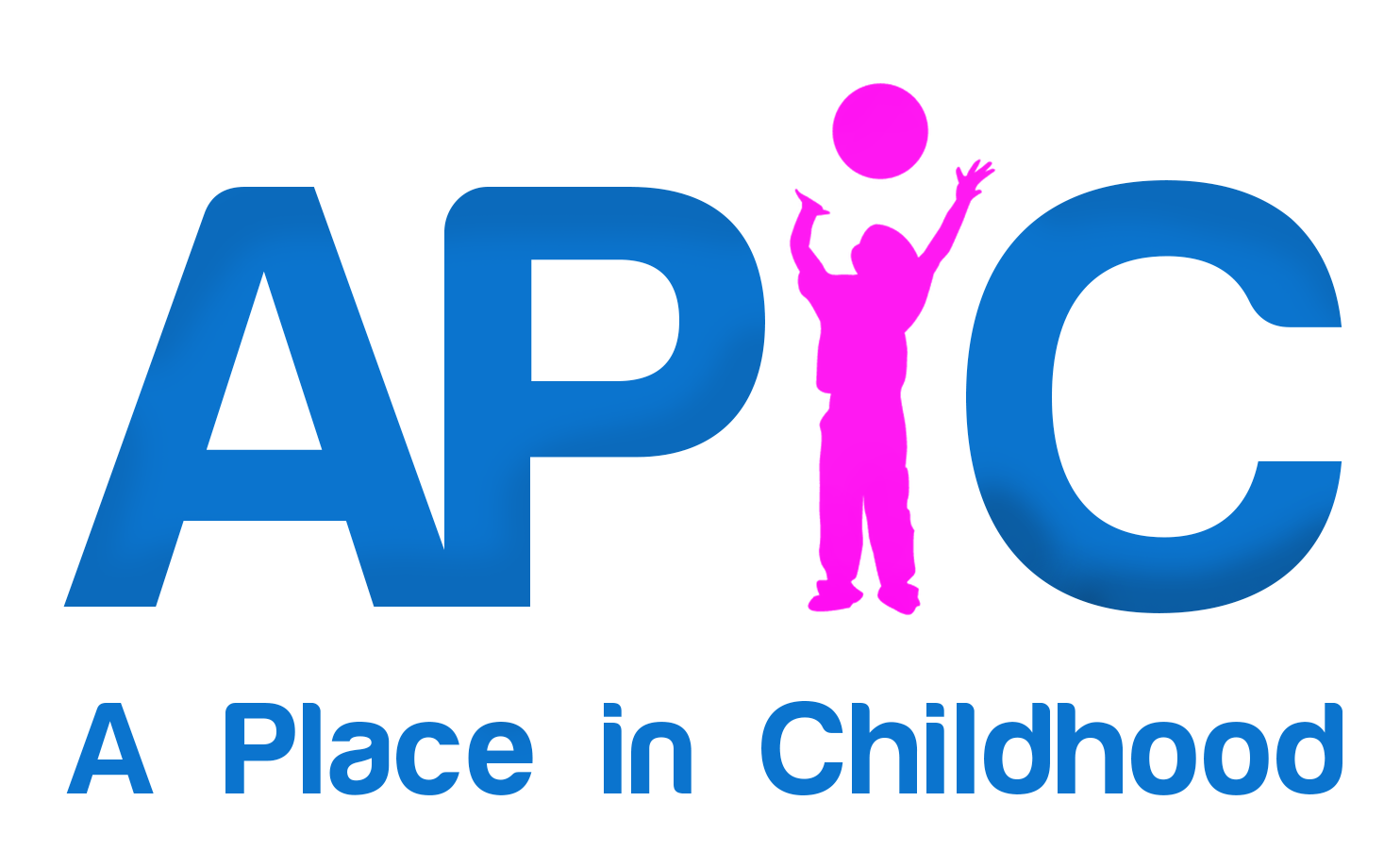This is the second of two blogs on a workshop APiC held with Long Covid Kids, as a part of our ongoing #ScotYouthandCOVID project with children and young people from across Scotland, and which is supported by the Children and Young People’s Commissioner Scotland (CYPCS).
The first of the blogs described what the Young Consultants shared with us about their experiences over the course of the pandemic and contains more information about the project.
In this second blog we detail the 3 new Needs related to these experiences which Young Consultants from Long Covid Kids need incorporated into the Manifesto for Children and Young People’s Rights in Recovery. We word these in the first person, thereby giving voice to the Young Consultants.
1: We need everyone to take the COVID-19 pandemic seriously.
It’s upsetting seeing people thinking and acting like it’s all over when it’s not. We are still unwell, infection rates are as high as they have ever been, notably in schools, and we’re afraid of contracting it again and making our condition worse. We have to avoid going out and meeting friends even though we know that’s what we need. There is still a very high risk that more children and young people will get Long COVID. It’s incredibly frustrating for us when people talk as though the pandemic is over:
‘I am fed up because the world is ignoring Long Covid and everyone thinks it’s over but it’s not over for me’. Young Consultant, age 9
This Manifesto for Children and Young People’s Rights in Recovery must therefore be clear in all its wording and framing that people are still catching COVID-19. We need to recover from its effects while being aware it’s not finished. Our comments from the mural below show how strongly we feel about this!
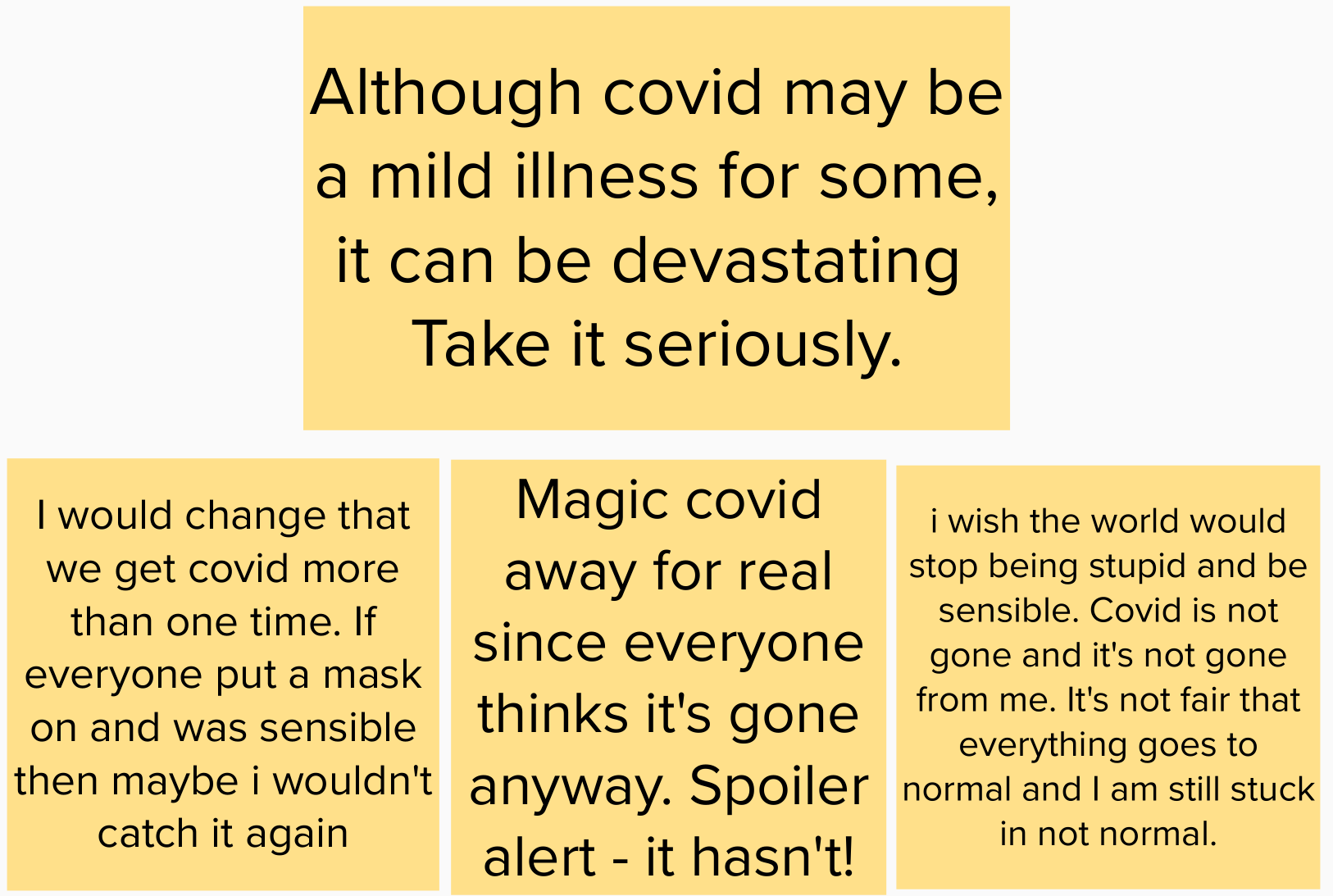
2: We need the people and places we engage with most to treat us well. They need to understand and adapt to our condition.
While our symptoms cannot be “seen” and we might seem normal to you, we have a chronic illness brought on by COVID-19. We’re not lazy or stupid, it’s not our fault we’re sick, and we would change the situation if we could.

Our symptoms can come on and off unpredictably. We need people to listen to and believe what we say about how we’re doing moment to moment, rather than giving advice on things they think will make us feel better. We need people to focus on what we can do and not what we can’t so we’re able to join in with schoolwork, play and other social activities. The wellbeing we gain from this makes it so much easier to cope with the symptoms of Long Covid.
Below we set out what we need from friend and family, our schools, and our medical facilities.
Friends and family
The last blog talked about how left out we can feel when our friends and family play active games, or forget about us because we’re often not in school. We want them to know that we’re still here and willing and able play and interact in other ways – board games, sitting and chatting, and online games are all great ways for us to hangout. Below is a Mural board that shows how much we wish for these things.

Schools
UNDERSTANDING OUR ILLNESS
It’s so important that schools and teachers properly understand our condition and what it means for our learning. We also need them to take responsibility for explaining this to other pupils. Once everyone understands and believes what Long Covid is like for us, then it’ll be easier for us to talk and work together on how we can best join in activities at our own pace.
The metaphors we described for representing what Long Covid is like about in Blog 1 – the spoons of “energy”, the invisible heavy rucksack, the weak battery – could be a useful way of explaining our experience and behaviour to teachers and classmates.
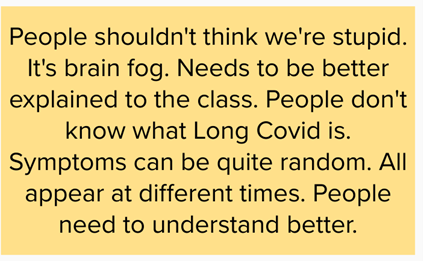
FLEXIBLE LEARNING
When we need to have time off, or we only come in part time, we miss out on a lot of learning. This can mean that we never feel like we get to finish stuff that we’re interested in, because we’re expected to do it in the same time as our classmates. This makes us feel worse. For example:
‘If I don’t start like a task, then I have to do other more important things. Like say, I haven’t started a story activity or something and everyone else is at the finishing stage. Well, then, my teacher just says, ‘well, there’s no point in starting it, because you won’t get it done in time’. And so then I just have to get on with other work. So I just normally miss out on that stuff… they don’t really send any schoolwork home, even though me and my parents have asked a couple of times now… I think it would be so much more helpful if I took it home and could do it in a more relaxing way.’ Young Consultant, age 10
The below Mural comments show more of what we need from school to be flexible.

We also need to be able to complete our exams in ways that allow us to progress. Expecting us to do well under conditions designed for pupils that aren’t ill means we are almost certain to fail on subjects. This is even so on subjects where we have been working to the very best of our ability and we know we’re good at.
This “one-size-fits-all” approach limits our long-term chances, because we’re still capable of passing exams and contributing to society. For example, with the support one of us had for Nat 4s – see the first blog – extended to all exams and assessments we would have the chance to stay on at school for additional years to do well at our own pace.
ONLINE LEARNING
In last week’s blog, we talked about how online learning during lockdowns actually helped some of us complete tasks when we could. However, we feel it could be made much better by learning from all the experience of the pandemic, and more stuff should be online as well to support us when we can’t make it into the classroom at all! This could really help us manage our learning in line with our energy levels, so we can keep up with our classmates.

Medical Facilities
It’s so important that doctors and other medical staff understand the seriousness of Long Covid. We’ve had really bad experiences of doctors not believing us, not giving us any treatment, or not knowing anything about Long Covid. They all need to learn about the condition and how to support us. For example, we reported in last week’s blog how one of us was told by a doctor for over a year that she was “imagining” her illness. In our Mural board below, the issue of inadequate medical care and support comes across very clearly.
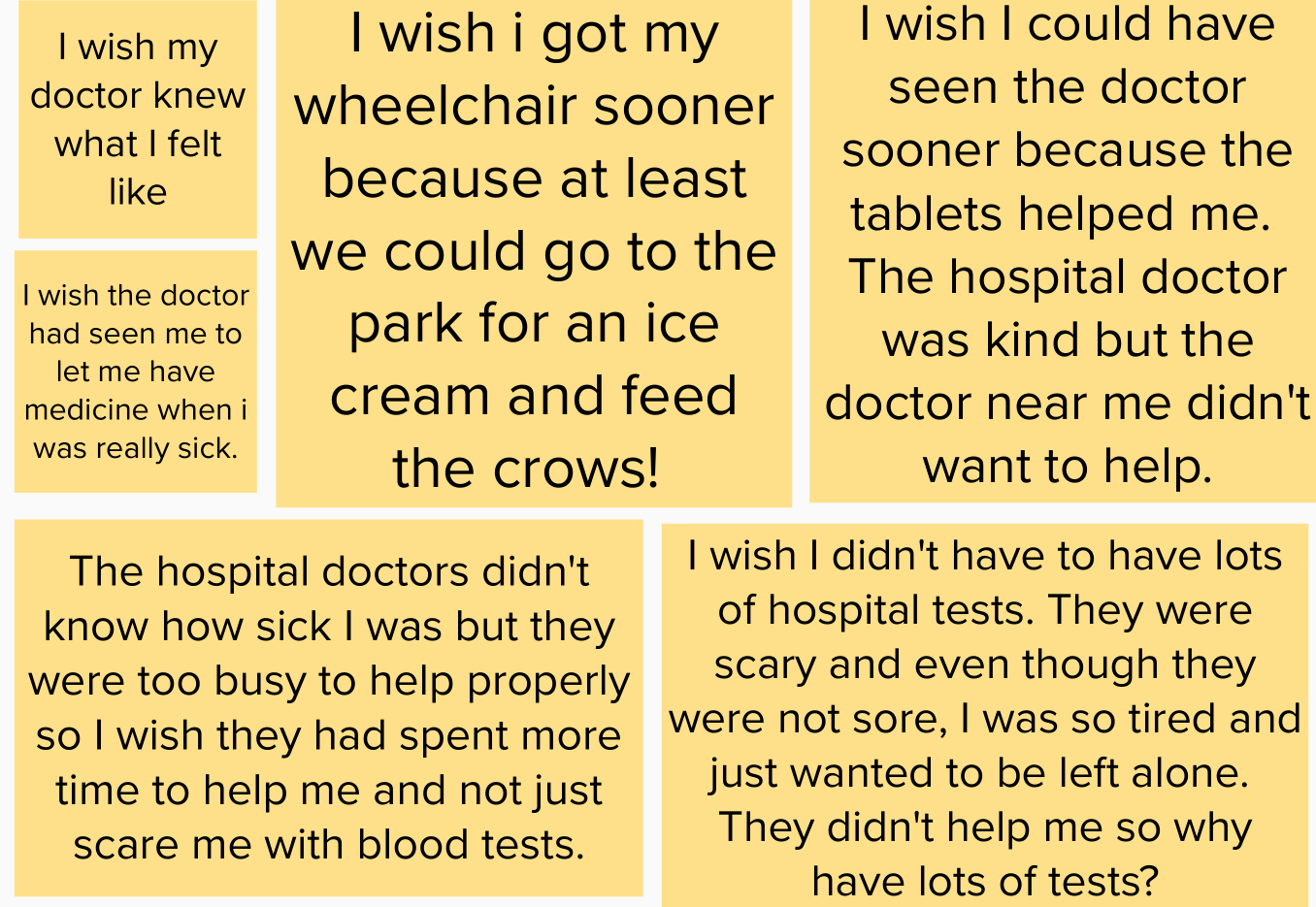
We especially need a clear pathway for treatment that respects our rights and wellbeing. For example, you can see in the Mural below that one of us felt very strongly that when we do find a medical person that cares and understands, it would be better for us to have that person help us get the care we need and be flexible.
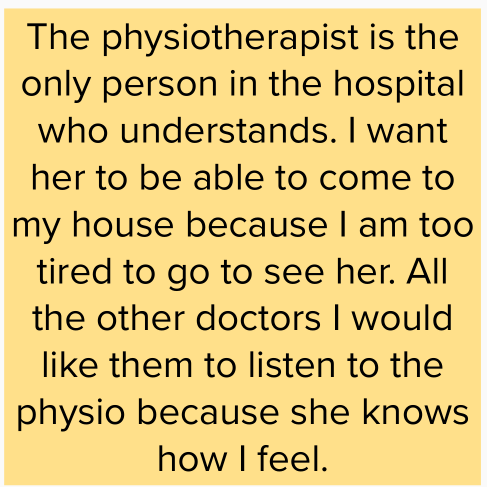
3: We need a way of proving to others that our behaviour is the result of our illness
Getting out and about can be hard enough as it is, but when we are out people can think there’s nothing wrong. For instance, in public we sometimes need something official to prove to others that we are ill, like a sunflower lanyard or a special card, so people respect we have reason to use facilities or seats ordinarily reserved for people with disabilities.
This would help us in school too, for example, a way of discreetly showing teachers or pupils when we need a rest. We are aware this kind of thing already exists in some places for children and young people with anxiety. Something like this would allow us to go up to the teacher or classmates and show them the card, to get automatic permission to find a quiet places and take a rest, or go home, so we can learn better and not exhaust ourselves.

Support from Long Covid Kids
If you’re looking for support for yourself and/or a child who may have Long Covid, Long Covid Kids can help. You can access further information, and download their resource ‘Support Guide: Shining A Light on Long Covid in Children and Young People’ by visiting www.longcovidkids.org
An online support group for parents/carers of children and young people living with Long Covid or suspected Long Covid in Scotland is also available here.
What’s Next?
We will be convening workshops with primary school children and four more seldom heard groups over the next month, as well as reconvening our original Young Consultants to discuss our findings. If you are interested in finding out more about this project, or getting on the mailing list to receive a link to our Scotland-wide survey later in the year, please get in touch with Dr Jenny Wood at jenny.wood@aplaceinchildhood.org.
We will be posting further updates on this project as we go, so follow us on Twitter for updates. We will also be writing a report at the end of the project, to chronicle our journey to the Children and Young People’s Manifesto for Rights in Recovery.
Read about wave one and wave two of #ScotYouthandCOVID here.
Find out about other APiC projects.
